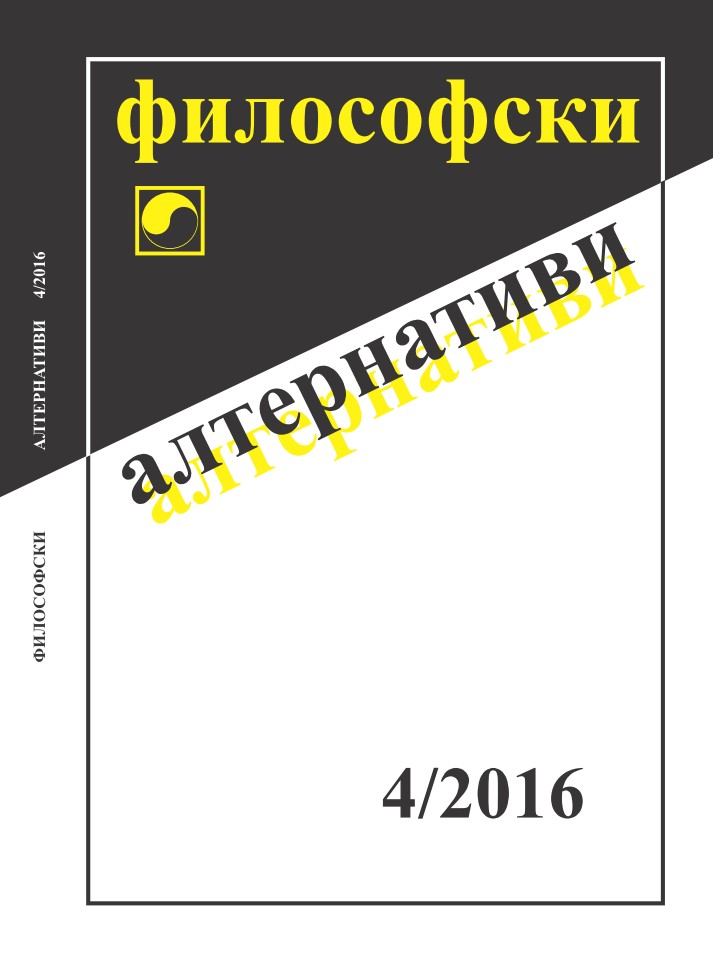
We kindly inform you that, as long as the subject affiliation of our 300.000+ articles is in progress, you might get unsufficient or no results on your third level or second level search. In this case, please broaden your search criteria.

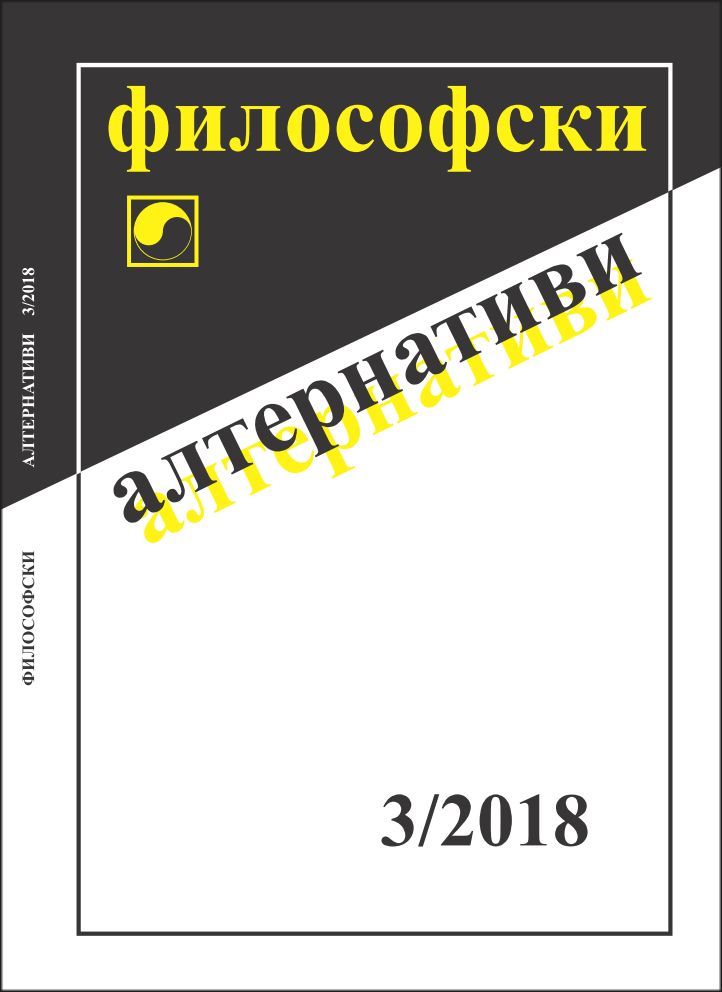
The consistent and logical assessment for the so-called “Socialist system” is „state Capitalism“ and all Marxist tenets about Capitalism -- class, class struggle, exploitation, nepotism, comprador bourgeoisie….should be applied to this system. Also the consistent and logical Marxist assessment of the actions of “Czarist Rus-sia" and USSR to Bulgaria would be being imperialistic. But although until 1940 Bulgarian Marxists sharply criticized „Czarist Russia“, Bulgarian Left today find it difficult to make such assessments.The reasons are not theoretical but psychological. As consecutive Marxists, they should come to uncomfortable conclusions about the System and about „Czarist Russia“ and USSR But for biographical reasons they have a deep personal sympathy for them. They believe that their prosperity has behaved to the "System", which in turn is the result of the occupation of Bulgaria from the USSR. And any negative assessment would be for them the attempt to destroy the world they have created and believe that this world was real, and challenging their value system. And often prefer to ignore all facts and logical analyzes, but to maintain their mental balance and to live in their artificial but beautiful world.
More...
The article discusses the process of strange transformation of Marxists into Putinists and Marxism in Putinism. This process is traced as a transformation of communist utopia and ideology into Orthodox fundamentalism and neo-eurasianism; the transformation of the totalitarian regime into a regime of "rival authoritarianism" and the communist nomenclature in a pseudo-capitalist oligarchy. The conclusion is that post-communism in Russia resembles Nazism rather than former communism.
More...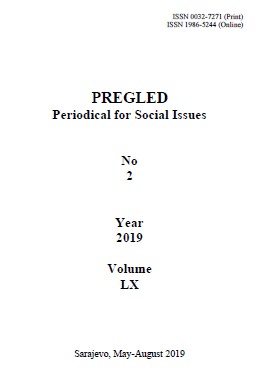
2019. je dočekala 30. godišnjicu evropskog 9. 11. – pad Berlinskog zida. Za razliku od 11. 9. koji se desio 12 godina poslije, a koji mnogi sada povezuju sa završetkom angloameričkog dominantnog kapitalizma, za mnoge Evropljane 9. 11. označava kraj hladnog rata. Obaranje zida sa sobom je vrlo brzo donijelo kolaps komunizma – kako nam to zvanična priča veli. Stoga bi to trebao biti datum koji se svake godine proslavlja kao krajnje, zauvijek postojeće otvaranje puta ka univerzalnom trijumfu slobode, globalno rasprostranjenoj ružičastoj budućnosti – jednom riječju: konačnom samoispunjenju ljudske rase. Nasuprot ovome je drugo mišljenje koje slijedi drukčiju tvrdnju. Svi vodeći sociopolitički pokreti, od prosvjetiteljstva, pa sve do kraja 20. stoljeća, nudili su vizije za cijelu ljudsku rasu: univerzalno koncipirane (ili ideologizirane) za sve i svakoga.
More...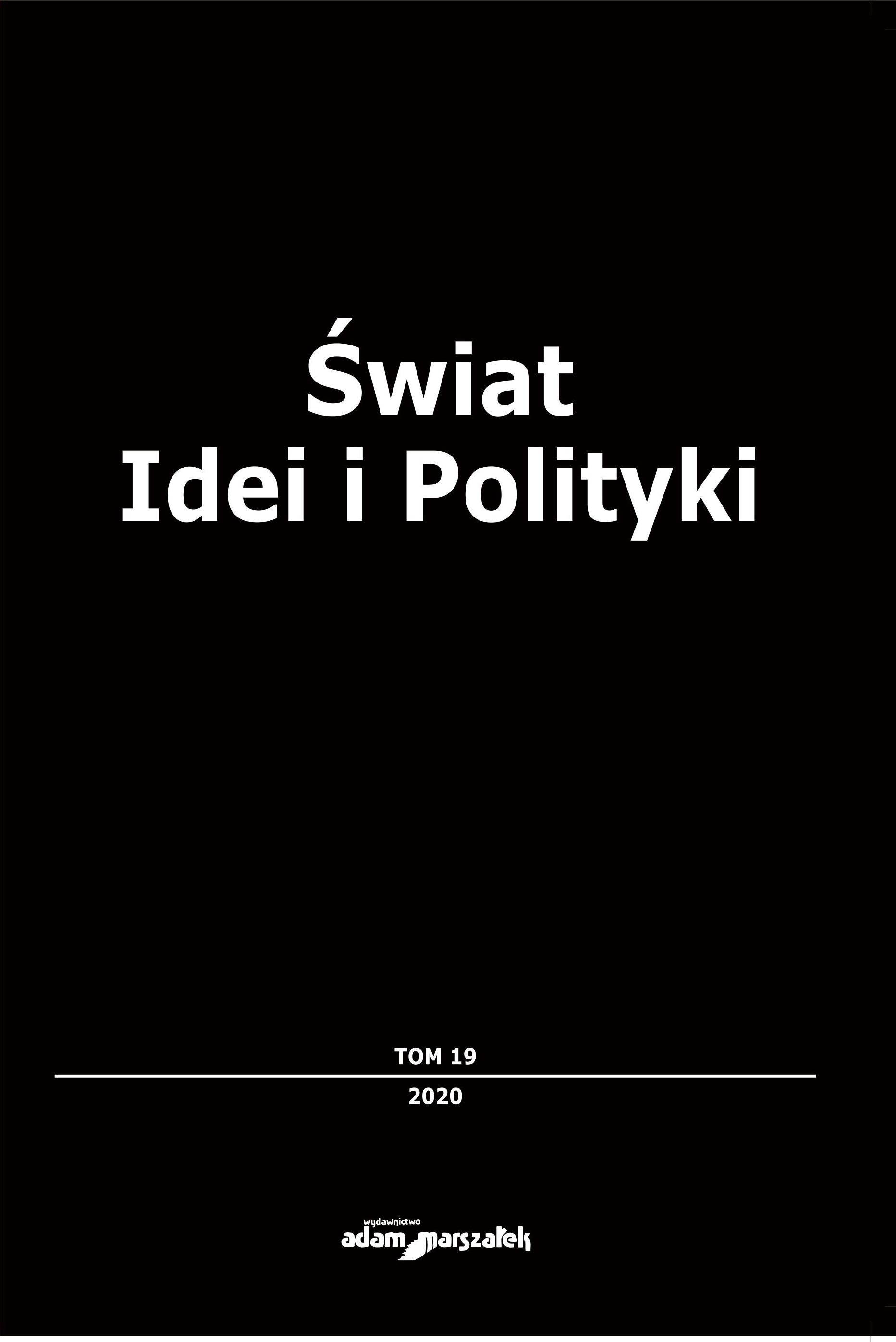
In this paper an author state a hypothesis that political extremism in New Zealand is a permanent phenomena that is present in New Zealand, which derives itself from globalization processes and evolves as the effect of idea’s diffusion. System theory is used as a theoretical perspective and a priori assumption that political extremism deepen state-phobia is made. Research methods such as lexical analysis and comparative analysis are used. During the research main extremist political trends are reveal, such as leftist, rightist, pro-ecological, islamic and postcolonial, and „lone-wolf” extremism. These phenomenon are highlighted in the perspective of potential security threats to the state. Ideological sources of extreme attitudes are revealed and shown in the most current political trends.
More...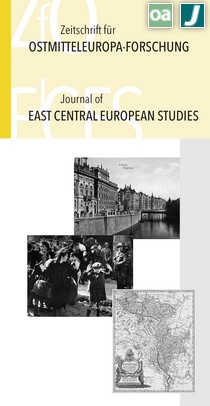
Review of: Patryk Wasiak - Martin Štoll: Television and Totalitarianism in Czechoslovakia. From the First Democratic Republic to the Fall of Communism. Bloomsbury Academic. New York u. a. 2019. XXII, 282 S. ISBN 978-1501324758. ($ 53,99.)
More...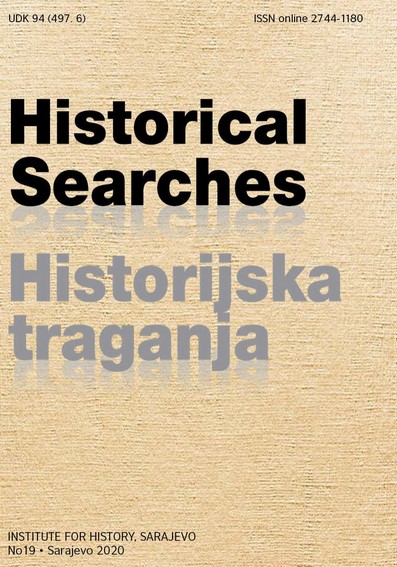
Review of: Hana Younis - Ehlimana Memišević, Sudovi: komparativna studija, Sarajevo: Centar za napredne studije, 2019, 462 str.
More...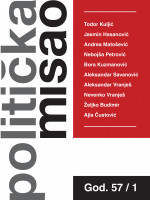
The paper analyses the notion of alienation in a dual sense: first, as a significant articulation of philosophical and sociological problems in Yugoslav socialist thought and beyond, but also as a very present accentuation of the work conditions detected in industry. This double position builds a partial comparison with and analysis of the context of today’s working conditions in the “cognitariat” sector, but from which detection of alienation is almost completely removed and replaced with terms such as “hopelessness”, “indifference”, “futility”, “self-exploitation”, or “burnout”. The paper interprets the lack of such substitution, since alienation, despite the constantly emphasized abstractness of its meaning, connotes criticism, change and overcoming the current issues. This implies strong effort towards disalienation, which is not the case with the mentioned substitutive terms. For this reason, linguistic analysis and attempts to answer the question on the possibility of speaking and analysing a part of today’s, especially working, conditions in terms of alienation are a dominant part of this paper.
More...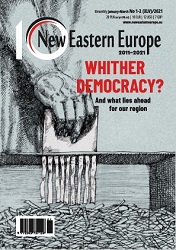
A conversation with Basil Kerski, director of the European Solidarity Centre in Gdańsk. Interviewer: Iwona Reichardt
More...
In 2020 a research project dedicated to understanding the meaning of 1989 conducted a series of talks with intellectuals and scholars in Germany, Hungary, Latvia, Lithuania, Poland and Romania. It collected witness testimony of these events as well as interviewing the post-1989 generation in order to understand their relationship to the history of the transformation. This essay is based on the outcomes of these discussions, focusing primarily on the role and meaning of citizen actions.
More...
Review of: Kinga Anna Gajda - The Legacy of Division: East and West after 1989. Edited by: Ferenc Laczó and Luka Lisjak Gabrijelčič. Publisher: Central European University Press / Eurozine, Budapest/Vienna, 2020.
More...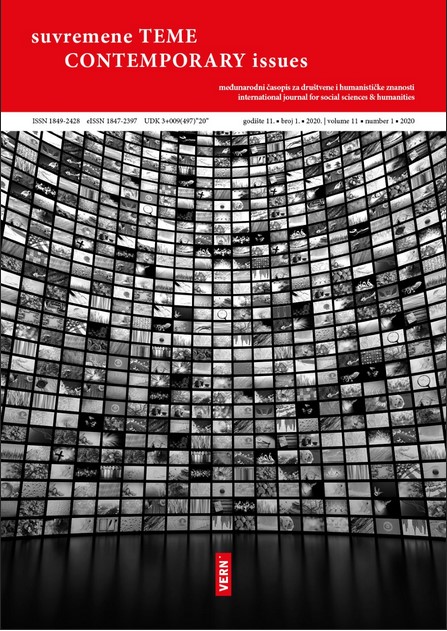
A few years after the peak of the 2015 migration crisis, this type of nonmilitary threat has become an important part of the political debate at national and supranational level of the European Union. The Republic of Croatia, as a part of the so-called Balkan Route, is no exception. Migration crisis from the 2015/2016 represents one of the most important issues discussed during the 2019/2020 presidential election campaign in the Republic of Croatia. Applying critical discourse analysis, this paper aims to explore the views of presidential candidates Zoran Milanović and Kolinda Grabar-Kitarović regarding the security challenges caused by mass migration. Units of analysis are the statements of the presidential candidates presented at the three television debates held during the presidential election campaign.
More...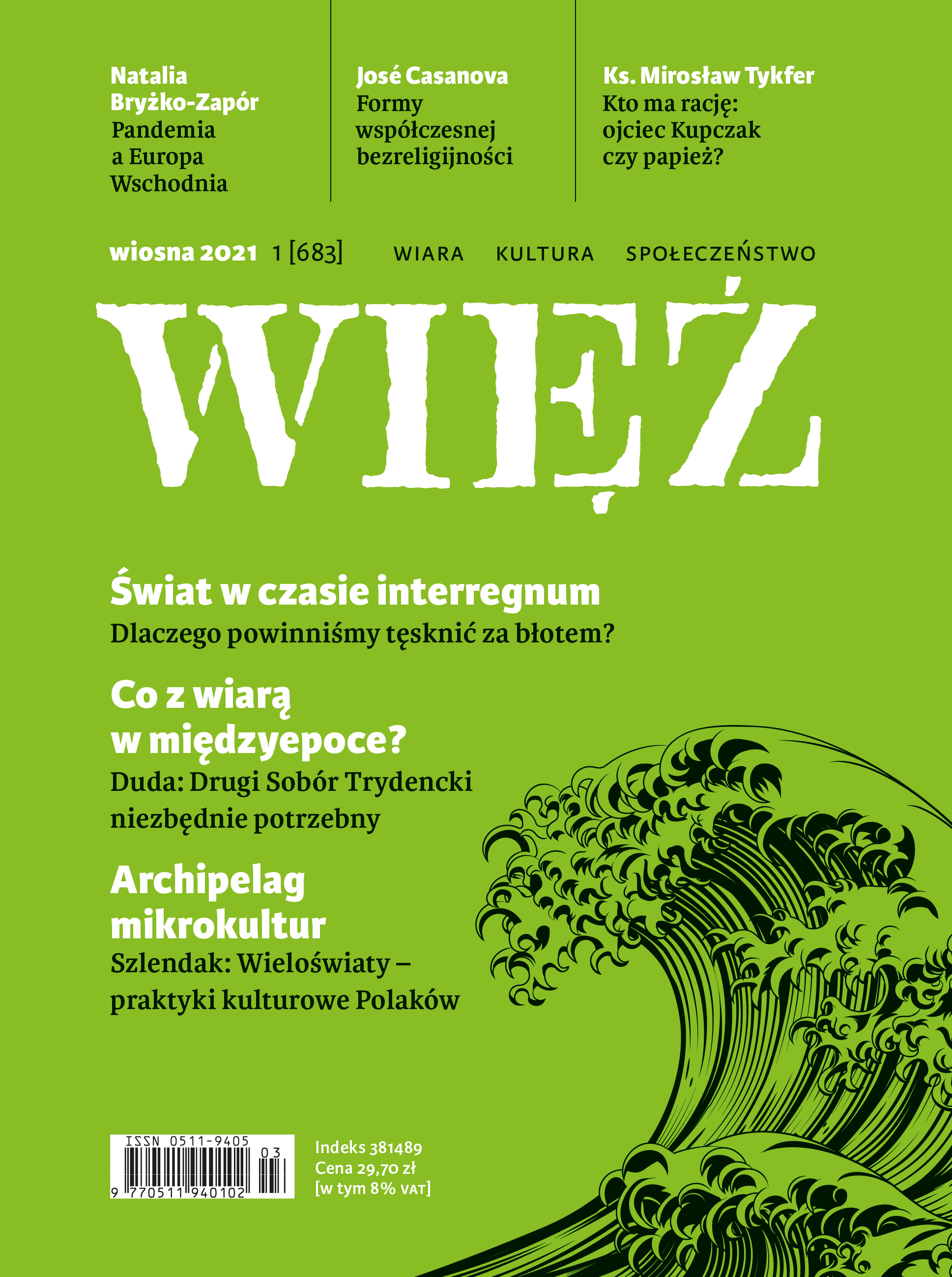
Review of: Andrzej Krawczyk - Andrzej Friszke, Marek Kornat, Ryszard Stemplowski, Dwie epoki. O celach w polskiej polityce zagranicznej 1918–1939 i 1989–2015, Wydawnictwo Naukowe Scholar, Warszawa 2020, 228 s.
More...
Discussion between Edwin Bendyk, Marek Migalski, Monika Rudaś ‑ Grodzka and Sebastian Duda
More...
W Polsce brakuje solidarności i brakuje braterstwa. Zużyliśmy je w sporach i osobistych ambicjach. Zgubiliśmy je w walkach „o znaczek”, w wojnach na górze. Z czegoś, co miało łączyć, uczyniliśmy pałkę do bicia inaczej myślących.
More...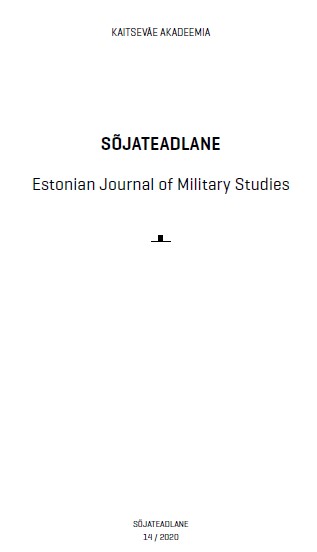
Teine maailmasõda aastatel 1939–1945 oli 20. sajandi üks kõige traagilisemaid sündmusi, mille järelmõju on tuntav tänapäevalgi. Sõja põhjuste, käigu ja tagajärgede uurimisel on tekkinud mahukas ajalooteadus, mis sisaldab selle kui inimkonna kõige verisema sündmuse erinevaid analüüse ja kirjeldusi ning millel puudub siiani erapooletu ühine nimetaja. Inimkonnale on esitatud laias laastus kaks erinevat nägemust. Ühelt poolt demokraatliku maailma enam-vähem realistlik, dokumentaalsele alusele tuginev sõjakäsitlus, mis paneb süü sõja vallapäästmise eest kahele Euroopa totalitaarriigile: hitlerlikule Saksamaale ja stalinlikule Nõukogude Liidule, kuna neil mõlemal oli ambitsioon saada maailma või vähemalt Euroopa valitsejaks. Teiselt poolt Nõukogude Liidu ja selle nüüdisaegset jäänukit – Venemaa Föderatsiooni – kakskümmend aastat presidendina juhtinud, Vene impeeriumi taastamisest unistava KGB ohvitseri Vladimir Putini ametlik populaarne stalinistlik ajalootõlgendus, mille järgi oli NSV Liit kallaletungi ohver ja Saksamaa käitus agressorina. NSV Liidu ja hiljem Venemaa ajalootõlgenduses polnud mingit Teist maailmasõda. Vene propaganda kohaselt võeti uuesti kasutusele enam kui sajandi tagune, 1812. aastal Napoleoni sissetungil Vene impeeriumi ja rahva vastupanu hüüdlauseks olnud termin „Suur Isamaasõda“, milles NSV Liit purustas Kolmanda Reich’i ning vabastas Euroopa ja kogu maailma fašistidest. Teatavasti kinnitas Stalin selle NSV Liidu „ametliku“ Teise maailmasõja ajaloo 1946. aastal. See oli tarvitusel nõukogude ajal ja Venemaa rakendab seda hübriidsõja efektiivse relvana siiani. Moskva on järjekindlalt süüdistanud lääneriike, sh Baltimaid, ajaloo võltsimises. Infosõda viimaste vastu, keda süüdistatakse natsismis ja fašismis, on muutunud hüsteeriliseks eriti viimastel aastakümnetel Vladimir Putini ajastul, mis algas tema üllatusliku saamisega Venemaa „igaveseks“ presidendiks 2000. aasta jaanuaris.
More...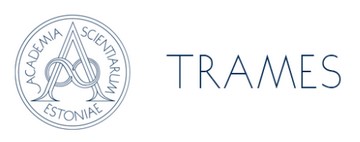
The war in Afghanistan began with the Soviet intervention and geopolitical developments of this crisis somehow attracted all the claiming actors of the international system. In this article, the authors have analysed the role of Russia and Iran by acknowledging the role of local causes and the other actors such as the United States, China, India, Pakistan, and Saudi Arabia in complicating the Afghanistan crisis. The difference between the role of Russia and Iran and that of other countries is that the two countries are trying to drive the US out of Afghanistan. That is, although they also have secondary goals, their priority is to make Afghanistan unsafe for the United States. The authors are thus trying to answer this question: “in a long process what steps have been taken by Russia and Iran to neutralize the US in Afghanistan so far?”
More...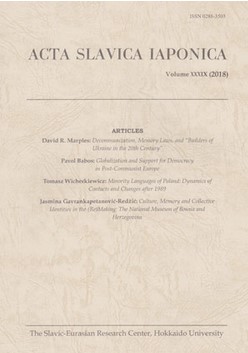
Review of: Robert Orttung - Taras Kuzio, Putin’s War Against Ukraine: Revolution, Nationalism, and Crime (Toronto: Chair of Ukrainian Studies, University of Toronto, 2017), 490 pp.
More...
We no longer have the enthusiasm and respect for statistical thinking that was felt in the 19th Century when the smartest young brains across Europe were looking to Quetelet and his successors to explain how probability theory could be used to explain how social scientific laws could be applied to the history of large numbers of apparently independent agents. The enthusiasm that was felt by Prince Albert and his colleagues in Britain, as they promoted statistical congresses and statistical work in the mid 19th century was shared by many Russian intellectuals in the late 19th century and flowed with them into the early revolutionary period. In fact the enthusiasm of the Russian statisticians was part of the great Russian Revolution of 1917. Trotskii, who was not himself a statistical thinker, caught a glimpse of this feeling of enthusiasm in the young Lenin and his generation when he described them as seeing statistics as “the science of sciences” in a new world that would be dominated by science. Few other biographers have dwelt much on this aspect of revolutionary enthusiasm for statistical thinking of the times. It was an important factor in Lenin’s thinking until mid 1921, when faced with a series of economic, political and personal (health) crises Lenin appears to have changed his mind on these matters. It is the views of this later sick and old Lenin that were followed by Stalin and his successors, and it is the “sick” late Lenin’s views on statistics that have generally been accepted by his biographers as his views on statistics and statisticians.
More...
Along with its political and economic recovery (after almost two decades of depression, resulting from the disintegration of the Soviet Union), the Russian Federation has conceptualized and implemented several initiatives aiming at (re)establishing its active, even dominant, position on the Eurasian continent. However, the ongoing changes in the structure of the global order have resulted in those attempts taking place in a new international environment. The Cold War-era territorial, political, and military domination of Russia over the Eurasian space was replaced by a polycentric system. On the one hand, it was marked by the expansion of the European project in the west, attracting and absorbing numerous states (including those located in the direct neighborhood of Russia). On the other hand, China became first a regional and then a global power, thereby gaining the ability to influence the eastern and even central parts of Eurasia. As Bobo Lo claimed, in a changing international environment, the victims are those states who “are either unwilling or unable to adapt” to the new circumstances.
More...